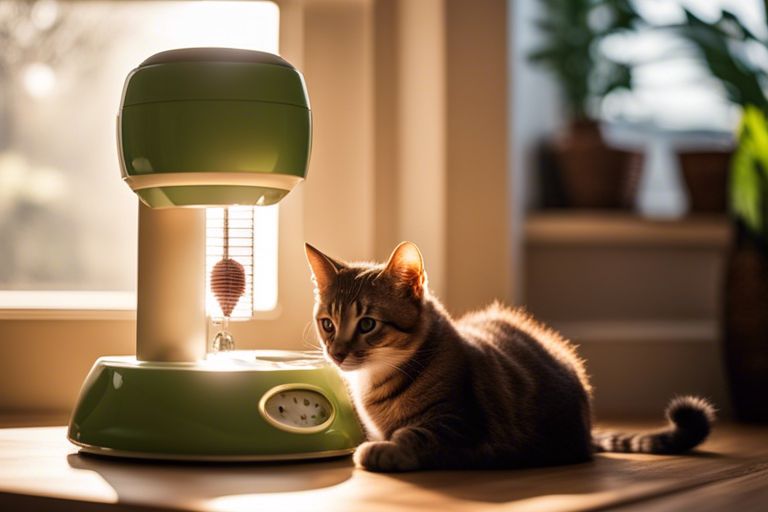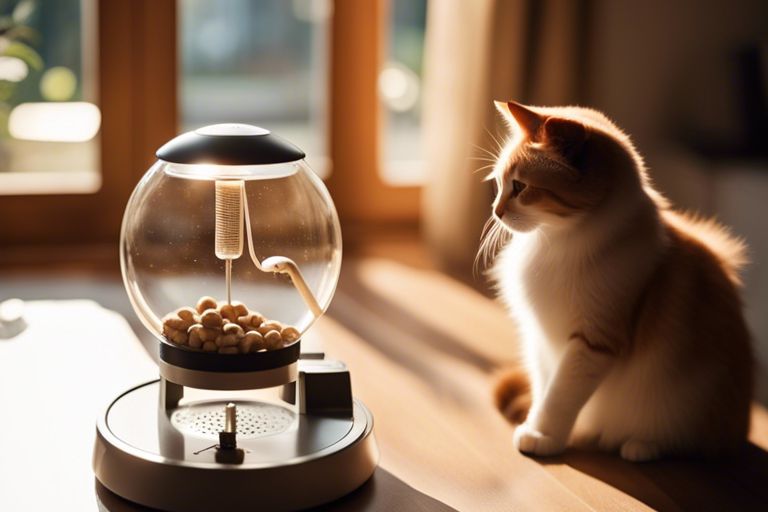Establishing a consistent routine for your cat’s feeding and playtime is crucial for their overall health and well-being. Cats thrive on routine, and a lack of structure in their daily schedule can lead to negative behaviors such as aggression, anxiety, or obesity. In order to establish a routine that works for both you and your feline friend, it’s important to identify the best feeding and playtime schedule that aligns with your lifestyle and your cat’s natural instincts. By creating a consistent routine, you can ensure that your cat receives the proper nutrition and physical activity they need to stay happy and healthy.
Understanding Your Cat’s Dietary Requirements
For your cat to thrive, it is essential to understand their dietary requirements. Cats are obligate carnivores, meaning they require a diet primarily composed of meat. Their diet should consist of high-quality animal protein and specific nutrients that are essential for their overall health and well-being.
Analysis of Age-Related Nutritional Needs
As your cat ages, their nutritional needs will change. Young kittens will require a diet that supports their rapid growth and development, which means they need a higher amount of protein and fat in their diet. Adult cats need a balanced diet to maintain their overall health and energy levels. Senior cats may require a diet that supports their aging bodies, with lower calorie content and certain supplements to support joint health and immune function.
Identifying the Right Type of Cat Food
When it comes to choosing the right type of cat food, there are a few options to consider. Dry cat food is convenient and can help keep your cat’s teeth clean, but it may not provide enough moisture for proper hydration. Canned cat food offers higher moisture content and can be beneficial for cats who don’t drink enough water. Raw or homemade diets offer a more natural approach to feeding, but they require careful planning to ensure your cat’s nutritional needs are met.
Creating a Feeding Schedule
Now that you’ve decided to establish a routine for your cat’s feeding and playtime, one of the first steps is to create a feeding schedule. Cats thrive on routine, so a consistent feeding schedule can help maintain your cat’s health and well-being.
Determining Meal Frequency and Portion Sizes
When creating a feeding schedule for your cat, it’s important to consider their age, weight, and activity level. Kittens and younger cats may require more frequent feedings, while adult cats typically do well with two meals a day. Portion sizes should be based on your cat’s ideal weight, and it’s important not to overfeed. Overfeeding can lead to obesity and other health issues. A general guideline is to feed your cat about 24-35 calories per pound of body weight, depending on their activity level. It’s always best to consult with your veterinarian to determine the appropriate portion sizes for your cat.
Consistency and Timing
Consistency is key when it comes to establishing a feeding schedule for your cat. Choose specific times for your cat’s meals and stick to them as closely as possible. This will help regulate your cat’s metabolism and digestive system. It’s also important to consider the timing of your cat’s meals in relation to their playtime and other activities. For example, feeding your cat before playtime can mimic their natural hunting and feeding behavior, which can be mentally stimulating.
Integrating Playtime into Your Cat’s Routine
Not only is mealtime important for your cat, but playtime is also a crucial component of their daily routine. Play helps to keep your cat physically and mentally stimulated, promotes bonding between you and your cat, and can even help alleviate behavioral issues. Integrating playtime into your cat’s routine is essential for their overall well-being.
The Role of Play in Your Cat’s Health
Play is a natural behavior for cats and serves several important purposes. It helps to keep them physically active, which is essential for maintaining a healthy weight and preventing obesity-related health issues. Additionally, playtime provides mental stimulation, helping to prevent boredom and reduce stress and anxiety. Regular play sessions can also help prevent behavioral problems such as aggression and destructive behavior, as it allows your cat to release pent-up energy in a positive way.
Scheduling Regular Play Sessions
Scheduling regular play sessions throughout the day is key to ensuring that your cat gets enough physical and mental stimulation. Aim for at least two to three short play sessions daily, each lasting around 10-15 minutes. You can use interactive toys such as feather wands, laser pointers, or crinkle balls to engage your cat in play. These toys allow your cat to engage in natural hunting behaviors and provide mental and physical exercise. Be sure to schedule playtime at times when your cat is most active, such as morning and evening, to make the most of these sessions.
By incorporating regular play sessions into your cat’s daily routine, you can ensure that they stay physically and mentally engaged, leading to a healthier and happier feline companion. Remember, play is not just a form of entertainment for your cat, but a necessary component of their overall well-being. Regular play can prevent obesity, reduce stress and anxiety, and promote positive behavior in your cat. So, make sure to prioritize playtime just as you prioritize mealtime in your cat’s daily schedule.
Monitoring and Adjusting the Routine
To ensure that your cat’s feeding and playtime routine is meeting their needs, it’s important to monitor their responses and be willing to make adjustments as needed. Cats are creatures of habit, but they can also change over time, so staying observant and open to changes is crucial.
Observing Your Cat’s Responses
When you first establish a routine for your cat’s feeding and playtime, pay attention to how they respond. Are they eagerly awaiting their meals and engaging in playtime, or do they seem disinterested or agitated? Look for signs of anxiety, such as excessive meowing or pacing before mealtime, or lack of interest in playing. It’s important to note any changes in behavior, as this could indicate that the routine needs to be adjusted.
Making Modifications for Health and Happiness
If you notice any concerning changes in your cat’s behavior or demeanor, it’s crucial to make modifications to their feeding and playtime routine. Changes in appetite, weight, or energy levels may indicate underlying health issues, so it’s important to consult with your veterinarian if you have any concerns. Additionally, if your cat seems bored or disengaged during playtime, consider introducing new toys or activities to keep them mentally and physically stimulated.

Establishing a Routine for Your Cat’s Feeding and Playtime
Considering all points discussed, it is important to establish a routine for your cat’s feeding and playtime to ensure they have a healthy and fulfilling life. By providing regular meal times and play sessions, you can help your cat feel more secure and reduce their anxiety. Additionally, a consistent routine can also help ward off behavioral issues and establish a stronger bond between you and your feline companion. Remember to be patient and flexible as you work to implement a routine that works for both you and your cat. By doing so, you can provide the best care for your furry friend and enjoy a harmonious relationship for years to come.














